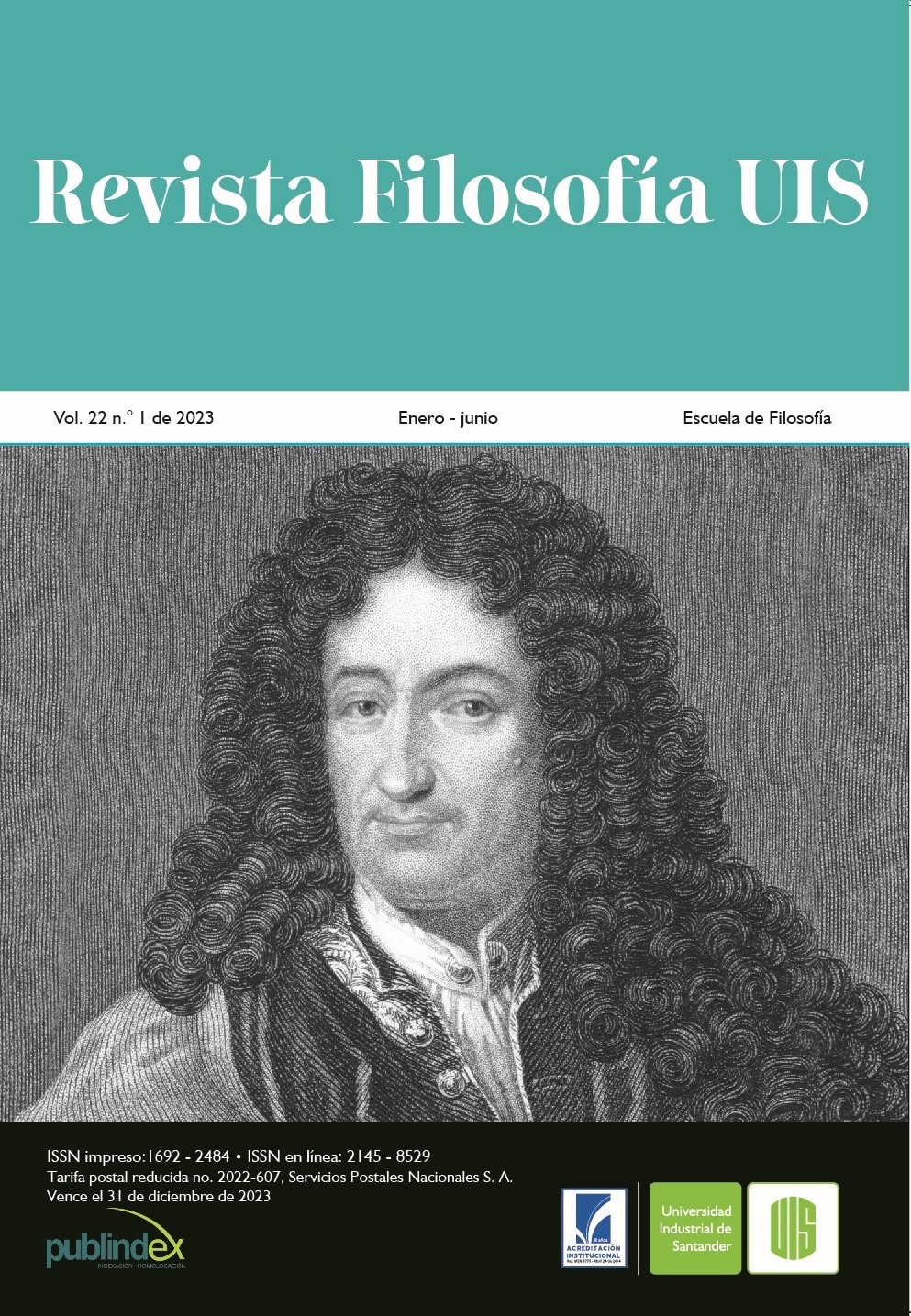The Problem of the Moral Obedience to the Law from the Theoretical and Conceptual Assumptions of Normative Ethics
Published 2023-01-02
Keywords
- moral obedience,
- law,
- normative ethics,
- constitutional case law,
- justice
How to Cite
Copyright (c) 2023 Revista Filosofía UIS

This work is licensed under a Creative Commons Attribution 4.0 International License.
Abstract
This reflection article is the result of a research that used a qualitative methodological approach expressed in two dimensions: an analytical-conceptual one and a critical-hermeneutical one. Its primary objective is to analyze the problem of moral obedience to the law based on the theoretical and conceptual assumptions of normative ethics. Holding as the main thesis that ethics is far from being an applied morality, since this would lead to confuse ethics with morality and, on the contrary, compliance with the norms is given as morally correct, consequently, it will be possible to conclude Through the present work that there is a moral obligation to comply with the law, except for specific moral judgments against certain regulations of conduct established by norms that are not in accordance with critical or moral values.
Downloads
References
- Beck H. (2004). El Ser como Acto. Continuación especulativa de la doctrina de Santo Tomás sobre el Ser, inspirada en el principio dialéctico de Hegel. EUNSA.
- Corte Constitucional (1994, 16 de noviembre). Sentencia C-511/94 (Fabio Morón Díaz, M. P.).
- Corte Constitucional (1995, 4 de diciembre). Sentencia C-578/95 (Eduardo Cifuentes Muñoz, M. P.).
- Corte Constitucional (2012, 30 de julio). Sentencia T-603/12 (Adriana María Guillén Arango, M. P.).
- Cotroneo Ormeño, C. (2015). ¿Obligación moral de obedecer el Derecho? La desobediencia civil en Rawls y su inclusión en el positivismo jurídico incluyente. Revista de Derecho y Humanidades, (25), 63-85. https://derechoyhumanidades.uchile.cl/index.php/RDH/article/view/47308
- De Zan, J. (2004). La ética, los derechos y la justicia. Argenjus. https://www.corteidh.or.cr/tablas/23356.pdf
- Fernández García, E. (1990). El punto de vista moral y la obediencia al derecho. Revista del Centro de Estudios Constitucionales, (6), 45-55. http://www.cepc.gob.es/sites/default/files/2021-12/35359rcec06043.pdf
- Fernández García, E. (2014). La obediencia al Derecho. EUNOMÍA. Revista En Cultura De La Legalidad, (1), 114-118. https://e-revistas.uc3m.es/index.php/EUNOM/article/view/2161
- Finnis, J. (2011). Positivism and ‘Authority’. En Philosophy of Law: Collected Essays: Volume IV (pp. 74-88). Oxford University Press.
- Forgas, J. (Ed.). (2001). Introduction. Handbook of Affect and Social Cognition (pp. 163-185). Lawrence Erlbaum Associates.
- García Máynez, E. (1944). Ética. Centro de Estudios Filosóficos.
- Hume, D. (1981). Tratado de la naturaleza humana. Editora Nacional.
- Kahneman D. y Tversky A. (Eds.) (2000). Choices, values, and frames. Cambridge University Press.
- Korsgaard, C. (2000). Las fuentes de la normatividad. (L. Lecuona & L. Manríquez, trad.). UNAM.
- Magoja, E. E. (2017). ¿Obedecer las leyes?: utilitarismo, retórica forense y autoridad en el Critón de Platón (50a6-50b5). Tópicos, (53), 411-434. https://doi.org/10.21555/top.v0i53.815
- Mateos Martínez, J. (2021). Moral y Derecho en el siglo XXI. Revista Filosofía UIS, 20(1), 49–82. https://doi.org/10.18273/revfil.v20n1-2021003
- Melchor, A. P. (2018). La vigencia de la ética normativa. Revista de Filosofía Euphyía, 12(23), 9-36. http://dx.doi.org/10.33064/23euph1845
- Molina Ochoa, Andrés. (2011). El papel de la coacción en la teoría de las reglas de Hart. Ius et Praxis, 17(2), 305-330. https://dx.doi.org/10.4067/S0718-00122011000200011
- Nino, C. S. (2003). Introducción al análisis del derecho. Astrea.
- Sánchez Vásquez, A. (1984). Ética. Editorial Grijalbo.
- Villegas de Posada, M. C. (2004). La acción moral. Contraste entre las explicaciones motivacionales dadas por la filosofía y la psicología. Revista de Estudios Sociales, (18), 27-35. https://doi.org/10.7440/res18.2004.02
- Zajonc, R. B. (1980). Feeling and thinking: Preferences need no inferences. American Psychologist, 35(2), 151–175. https://doi.org/10.1037/0003-066X.35.2.151

